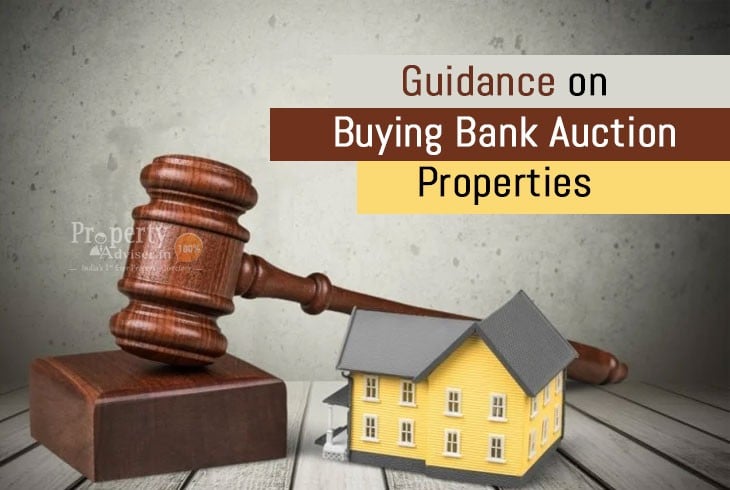If you are thinking about saving, but at the same time want to buy a house, perhaps buying bank auction properties is your best option. Sometimes you cannot find properties at good locations that suit your budget but at bank auction you can find your dream home. Also, properties that are offered at bank auctions differ in cost & size and you can buy these properties located in other cities too. Bank properties for sale are not only cheaper to purchase but are also deemed to be legally free.
But before making the decision, you have to research properly before investing in bank auction properties. To make a safe and secure purchase in bank auctioned residential properties, it is beneficial to hire a property expert, especially when the amount is high.
What are Bank Auction Properties?
The properties repossessed by banks are regularly sold off at rates 20-30 per cent lower than the prevailing market rate through auctions. A bank auction can be uplifting, but a very tedious way of grabbing a sale. Under the SARFAESI Act (Securitisation and Reconstruction of Financial Assets and Securities Interest Enforcement Act, 2002), banks are permitted to sell off repossessed or stressed properties to recover their losses.
These properties are seized by banks after the lenders have made several mispayments. They are also sold at attractive prices, as banks sell foreclosed properties solely to recover the remaining principal and interest amount.
While purchasing residential bank foreclosed properties, the interested bidder should engage in a legal title search of the property to ensure the validity of key documents such as the original sales deed and non-encumbrance certificate, for the avoidance of disputes later. Banks can auction both under-construction and ready-to-move-in properties, including flats, plots, and individual houses as well.
Buyers Checklist on Bank Auctions Properties
Investigation of Property
A physical inspection of the auctioned property is advisable. Banks usually provide a date for inspection, and on that date, the buyer could visit the site to inspect the property physically. In the case of e-auctions, the same can be done by applying to the bank official concerned. Purchasing properties where the bank has physical ownership is fine. If it's just a symbolic possession, you may have to wait a little longer for possession. Make sure you get physical property ownership as soon as you complete the payment to prevent any legal disputes.
Evaluate Property Price
You must review your budget before entering a cycle of auctioning a deposit. It may create a problem for you after you have bid but fail to make payment. It would be best if you also compare the market price to the Auction. Even though these bank-owned homes for sale often cost less than the market price, the price may be higher due to several other reasons like the trending location, construction quality, amenities, civic infrastructure or some other feature. Also, check if the property needs any maintenance or renovations. Ensure that no pending utility responsibilities will be added to the total cost.
Understanding Location Requirements
Several properties are not situated in suitable areas. So checking the zoning requirement is vitally important. Specific properties may be residential but may not be in residential areas. And you can either employ an expert or ask about that aspect with the bank. Buying a property requires a huge amount of investment; it is good to ask questions and get clarity.
Community and Neighboring Areas
You should check the property's surrounding area, as the local environment can affect future prices. It should be noted in the case of apartments that the buildings have their rules and regulations, which could hinder the future aspect of renting or leasing if that is what the buyer has in mind. Parking and any other expenses or problems should be known in advance.
Make Sure to Check Documentation
Ensure that you receive from the bank two essential documents, one is the certificate of indemnity, and the other is a protective penalty clause against the owner. The indemnity clause would help shield you from the owner's possibility of potential lawsuits as you are protected by the penalty clause against the seller opting out of the deal.
A buyer must check the property's title and mortgage documents, litigation fees, statutory dues, unpaid electricity bills, municipal dues, or any other attached taxes. If an informed decision is taken, a buyer will get a good deal without any legal risk from a bank auction property.
If you choose to buy a bank-owned residential house at a discounted rate, thorough research is a must for wise decisions to make a risk free investment in your dream home.
By: Shailaja K












